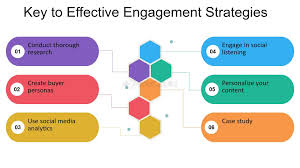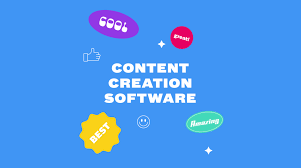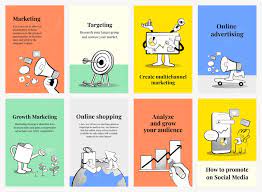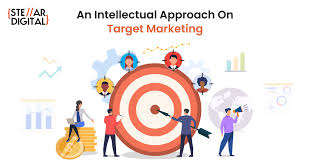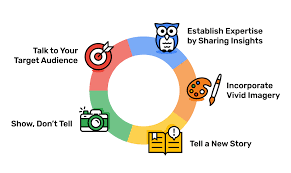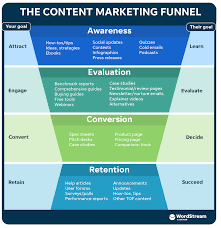Maximizing Digital Engagement: Effective Strategies and Tactics in Social Media Marketing
Digital Engagement Strategies and Tactics in Social Media Marketing
Social media has become a powerful tool for businesses to connect with their audience and build brand awareness. To make the most out of social media marketing, it is essential to implement effective digital engagement strategies and tactics. Here are some key strategies to boost engagement on social media:
Content is King
Creating high-quality, relevant content is crucial for engaging your audience on social media. Share valuable information, entertaining visuals, and interactive posts that resonate with your target demographic.
Consistent Brand Voice
Maintaining a consistent brand voice across all social media platforms helps in building brand recognition and loyalty. Ensure that your messaging aligns with your brand values and resonates with your audience.
Use Visuals Effectively
Visual content such as images, videos, infographics, and GIFs tend to perform better on social media platforms. Use eye-catching visuals to capture the attention of your audience and convey your message effectively.
Engage with Your Audience
Respond to comments, messages, and mentions promptly to show that you value your audience’s input. Engaging with your followers creates a sense of community and fosters loyalty towards your brand.
Utilize Hashtags Wisely
Hashtags help increase the visibility of your posts on social media platforms. Research relevant hashtags in your industry and use them strategically to reach a wider audience interested in your content.
Collaborate with Influencers
Influencer marketing can be a powerful way to reach new audiences and boost engagement on social media. Partnering with influencers who align with your brand values can help increase credibility and trust among their followers.
Analyze Data and Adjust Strategies
Regularly monitor key performance metrics such as engagement rates, reach, clicks, and conversions to evaluate the effectiveness of your social media campaigns. Use this data to refine your strategies for better results.
By implementing these digital engagement strategies and tactics in your social media marketing efforts, you can enhance brand visibility, foster meaningful relationships with your audience, and drive business growth.
Maximising Digital Engagement: Six Essential Strategies for Effective Social Media Marketing
- Create engaging and relevant content that resonates with your target audience.
- Utilize various social media platforms to reach a wider audience.
- Interact with your followers by responding to comments and messages promptly.
- Run contests, polls, or surveys to increase engagement and gather feedback.
- Collaborate with influencers or other brands to expand your reach and credibility.
- Analyse data and metrics regularly to track the performance of your strategies and make necessary adjustments.
Create engaging and relevant content that resonates with your target audience.
Creating engaging and relevant content that resonates with your target audience is a fundamental tip for successful digital engagement strategies in social media marketing. By understanding the preferences, interests, and needs of your audience, you can tailor your content to capture their attention and spark meaningful interactions. Whether it’s informative articles, captivating visuals, or interactive posts, delivering content that speaks directly to your audience can foster a stronger connection, increase engagement levels, and ultimately drive valuable results for your brand.
Utilize various social media platforms to reach a wider audience.
To maximise digital engagement in social media marketing, it is essential to utilise a variety of social media platforms strategically. By expanding your presence across different platforms, you can effectively reach a wider and more diverse audience. Each platform offers unique features and demographics, allowing you to tailor your content and engagement tactics to suit the preferences of specific user groups. This multi-platform approach not only increases brand visibility but also enables you to connect with potential customers who may be active on different social media channels.
Interact with your followers by responding to comments and messages promptly.
An essential tip for enhancing digital engagement in social media marketing is to actively interact with your followers by responding to comments and messages promptly. By engaging with your audience in a timely manner, you demonstrate that you value their input and feedback, fostering a sense of community and building trust in your brand. This two-way communication not only strengthens relationships with your followers but also encourages ongoing engagement and loyalty towards your brand.
Run contests, polls, or surveys to increase engagement and gather feedback.
Running contests, polls, or surveys is a highly effective tactic to boost engagement and gather valuable feedback on social media. By incorporating interactive elements into your social media strategy, you can encourage audience participation and create a sense of excitement around your brand. Contests can drive user-generated content and increase brand visibility, while polls and surveys provide insights into consumer preferences and opinions. This not only enhances engagement but also helps in understanding your audience better, enabling you to tailor your content and offerings to meet their needs effectively.
Collaborate with influencers or other brands to expand your reach and credibility.
Collaborating with influencers or other brands is a powerful strategy to expand your reach and credibility in social media marketing. By partnering with individuals or companies that have a strong following and influence in your industry, you can tap into their audience and gain access to new potential customers. This collaboration not only helps increase brand visibility but also enhances credibility and trust among the followers of the influencers or brands you partner with. It is a mutually beneficial relationship that can amplify your message and drive engagement on social media platforms.
Analyse data and metrics regularly to track the performance of your strategies and make necessary adjustments.
Regularly analysing data and metrics is a crucial step in effective social media marketing. By tracking the performance of your strategies, you can gain valuable insights into what is working well and what needs improvement. This data-driven approach allows you to make informed decisions and adjustments to optimise your social media campaigns for better engagement and results. Monitoring key metrics helps you understand your audience’s behaviour, preferences, and interactions with your content, enabling you to tailor your strategies to meet their needs effectively.



